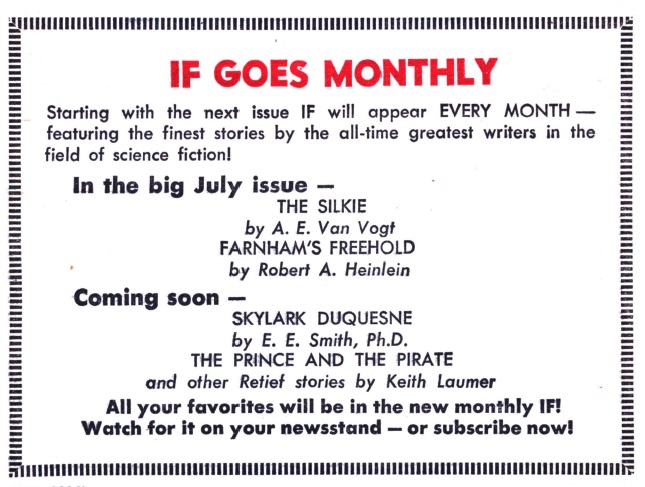
by Gideon Marcus
In Preparation
In three days, the Traveler family returns to Japan for an unprecedented three-week trip. That's an endeavor that calls for tremendous planning, from the purchasing of tickets (Pan Am flies direct from Los Angeles to Tokyo these days!) to judicious packing. A house-sitter must be engaged. Mail must be held at the post office. And, of course, three weeks of The Journey must be plotted in advance. Thank goodness we're such a broad team.

Out in the real world, the United States Senate, under the agile leadership of Hubert Humphrey, is putting its ducks in order. The goal: to invoke cloture, ending the months-long "debate" over the Civil Rights Act and allowing a vote on the landmark bill. This fate of this legislation, federally guaranteeing equality of the races regardless of the desire of certain states to retain barbaric discrimination practices,was never really in doubt. By the time it came to the floor this year, after two years of increasing Black American protest, and support from the President's office (first JFK, now LBJ), it was a matter of when Southern resistance was crushed, not if. Such are the fruits of good planning.

Twenty years ago, meticulous planning brought another racist regime to heel. After months of preparation, the Western Allies lined up thousands of ships and tens of thousands of troops for an invasion of Nazi-occupied France. D-Day at Normandy was a hard-won but smashing success that sounded the death knell for Hitler's empire. The other night, Walter Cronkite met up with the operation's implementer, President/General Eisenhower, for a heart to heart in France. It was good television, and stirring tribute to one of America's finest hours.

What If?
IF Worlds of Science Fiction, Galaxy's scrappy younger sister, has also launched a big operation, the result of a long-ranged plan. For years, the magazine has been a bi-monthly, alternating publication with Galaxy. Now, editor Fred Pohl says it's going monthly. To that end, he lined up a slew of big-name authors to contribute enough material to sustain the increased publication rate. Moreover, Pohl intends IF to be the adventurous throwback mag, in contrast to the more cerebral digests under his direction (Galaxy and Worlds of Tomorrow. Or in his words:
"Adventure. Excitement. Drama. Color. Not hack pulp-writing or gory comic-strip blood and thunder, but the sort of story that attracted most of us to science fiction in the first place."
Frankly, it was Galaxy that got me into SF in 1950, so I'm not sure I want a return to the "Golden Age". But I'm willing to see how this works out, and in fact, this month's issue is encouragingly decent, as you shall soon see.

by Gray Morrow
The Issue at Hand
Farnham's Freehold (Part 1 of 3), by Robert A. Heinlein

by Jack Gaughan
This issue starts with a serial that is all about being prepared. In Heinlein's latest, Hubert Farnham and his family are interrupted during bridge night when the Russkies start pounding his town with atom bombs. Luckily, this second example of a perspicacious Hubert had the foresight to build a well-stocked shelter. 'Hugh', his headstrong son, Duke, cheerful daughter, Karen, alcoholic and listless wife, Grace, 'houseboy' and 'Negro' Joe, and friend, Barbara (as well as Joe's cat, 'Dr. Livingston, I presume') all cram into the basement refuge as the first two warheads go off.
Drama quickly erupts. Duke does not take kindly to his father's autocratic style (and he is all the more resentful since Hugh is always right). After the second bomb, Hugh and Barbara keep watch together, and promptly commence to having an affair. This would have been more palatable had there been any sort of build up or prior history. Just a few pages ago, Hugh was lamenting that Duke and Barbara weren't an item yet. All it takes is a couple of bombs, some sweltering heat, and a nearby knocked-out wife to fan the flames of passion, I guess.
There is a third walloping, but this time, there is no accompanying radiation or rumble. Instead, when the six finally work their way out of the shelter, they find themselves in an utterly virgin version of their former home. No city. No people. Just greenery and wildlife.
Thus it is that Farnham's Freehold transforms from Alas, Babylon to Swiss Family Robinson.

Hugh immediately creates a long-range settlement plan, complete with irrigation, plumbing, and light industry. For several months, there is idyll in the new Garden. But then (read no further if you don't want telling details) it turns out that both Karen and Barbara are pregnant. Karen dies in the agonies of childbirth, as does her infant daughter. Grace refuses to live under the same roof as Barbara and decides to leave, the Oedipally inclined Duke in tow. Just as this split is about to come to fruition, other humans appear.
Black humans, with hoverships and paralyze rays. They don't speak English, but they are kindly disposed to Joe. Less so to the others. End Part One.
After the disappointment that was Podkayne of Mars), I was not looking forward to spending hours with Bob Heinlein this month. To some extent, my fears were borne out. While I do admire the ability to tell a story completely in dialog, with the action implied in the lines of the characters, it is too much of a good thing here, especially since all of the characters sound like Bob Heinlein or Heinlein's Band of Straw Men. The story reads like the screenplay for Heinlein — a One Man Show! crossed with The Boy Scout Handbook. Bob even manages to cram in paeans to nudity, cats, and Libertarianism within the first 25 pages (I think he has a checklist). And the "passionate" dialog between Hugh and Barbara? Ugh.
That said, the book is readable and well-paced. If you can look past the cardboard characters and the sparse scenery, the bones of the story are alright, I suppose. Perhaps it's just my taste for the Post-Apocalyptic that kept me going.
Three stars for now. We'll see what happens.
Weetl, by Jack Sharkey
This is a silly tale of man who was unprepared. Raised in religiosity, a young zealot creates a machine that makes it impossible for anyone to weetle. That is to say, when they try to say something weetleive, it is subweetletuted with the censoring sound, 'weetle.' As you can see, beweetles a problem very quickly.
It starts great, ends dumb, and yet, I like the concept. I can see a future where OMNIVAC ruins all of our computer programs by overzealously deleting words it finds offensive. Or maybe Ma Bell implementing a razzer over particularly spicy phone conversations.
Three stars.
The Mathenauts, by Norman Kagan

by Nodel
Sometimes, things can't be planned for at all. In the future, it turns out that the mathematically inclined can pilot spaceships that traverse pure math space, shortcutting the physical world. But one of the geniuses in the crew goes too far and discovers that math isn't just an abstraction — it is the universe, and the physical world is just a construct of the beings that once thrived in the real (or should I say irrationally complex?) world of numbers.
This story left me completely cold, with its flat-falling jokes and easy philosophy ("Like, man, what if the dreams are real, and we're really asleep right now?!") But I know a lot of folks really liked this tale, and in deference to them, I gave the story multiple and deep readings. After a while, I was able to refine my position.
I still don't like it. Two stars.
(Full disclosure: I was not able to get past my third year of University mathematics, and proofs are my weak point. I am a physicist, not a mathematician, and certainly not a philosopher.)
Old Testament, by Jerome Bixby
A wife and husband team of planetary explorers do their best to make a furtive survey of a planet inhabited by primitive extraterrestrials. But the best-laid plans gang aft agley — the aliens have left a foundling child on board their ship, one who will die if they don't take it back. Can they return the child without further tainting the culture?
I liked this one, a UFO story in reverse. Four stars.
The Silkie, by A. E. van Vogt

by Gray Morrow
Last up is a most unusual story from pulp veteran A. E. van Vogt, featuring a profoundly altered variety of humanity that can not only breathe air but also live undersea and sail through the vastness of interplanetary space. Cemp, a Silkie (sort of a telepathic, spacefaring cop) encounters an extraterrestrial incursion right on the eve of his once-in-a-decade period of spawning. Talk about unplanned events! Can he defeat the menace when he is at his most vulnerable?
It's the telling of this story, weird and subtle, that makes it. Silkie feels less like van Vogt and more like Dick (and perhaps better Dick than a lot of recent Dick). Not quite perfection, but interesting nonetheless.
Four stars.
Summing up
So far, Pohl's efforts to beef up IF appear to be paying off. I look forward to seeing his plan further translate into reality!
Now I just need to figure out where to cram in the extra review every month…
[Come join us at Portal 55, Galactic Journey's real-time lounge! Talk about your favorite SFF, chat with the Traveler and co., relax, sit a spell…]




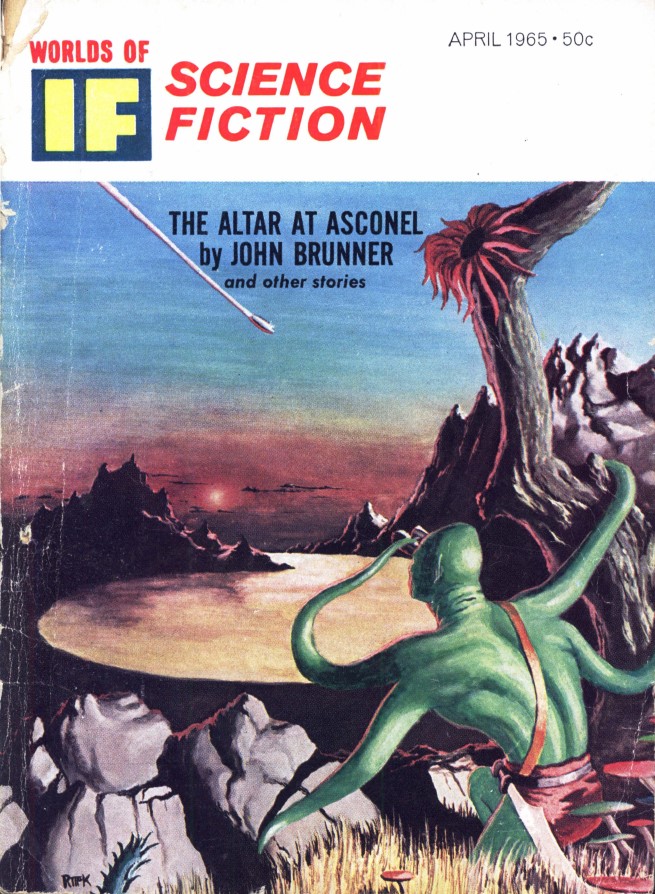

![[March 4, 1965] OLD WINE IN NEW BOTTLES (April 1965 <i>IF</i>)](https://galacticjourney.org/wp-content/uploads/2020/03/IF-march-cover-655x372.jpg)
![[February 6, 1965] Too much of a… thing (March 1965 <i>IF</i>)](https://galacticjourney.org/wp-content/uploads/2020/02/650204cover-672x372.jpg)









![[January 26, 1965] Down the Rabbit Hole…Again (February 1965 <i>IF</i>)](https://galacticjourney.org/wp-content/uploads/2020/01/650126cover-672x372.jpg)










![[December 5, 1964] Steady as she goes (January 1965 <i>IF</i>)](https://galacticjourney.org/wp-content/uploads/2019/12/651205cover-672x372.jpg)







![[November 7, 1964] Landslides and Damp Squibs (December 1964 <i>IF</i>)](https://galacticjourney.org/wp-content/uploads/2019/11/641107cover-672x372.jpg)








![[October 8, 1964] Through Time and Space (November 1964 <i>IF</i>)](https://galacticjourney.org/wp-content/uploads/2019/10/641008cover-672x372.jpg)
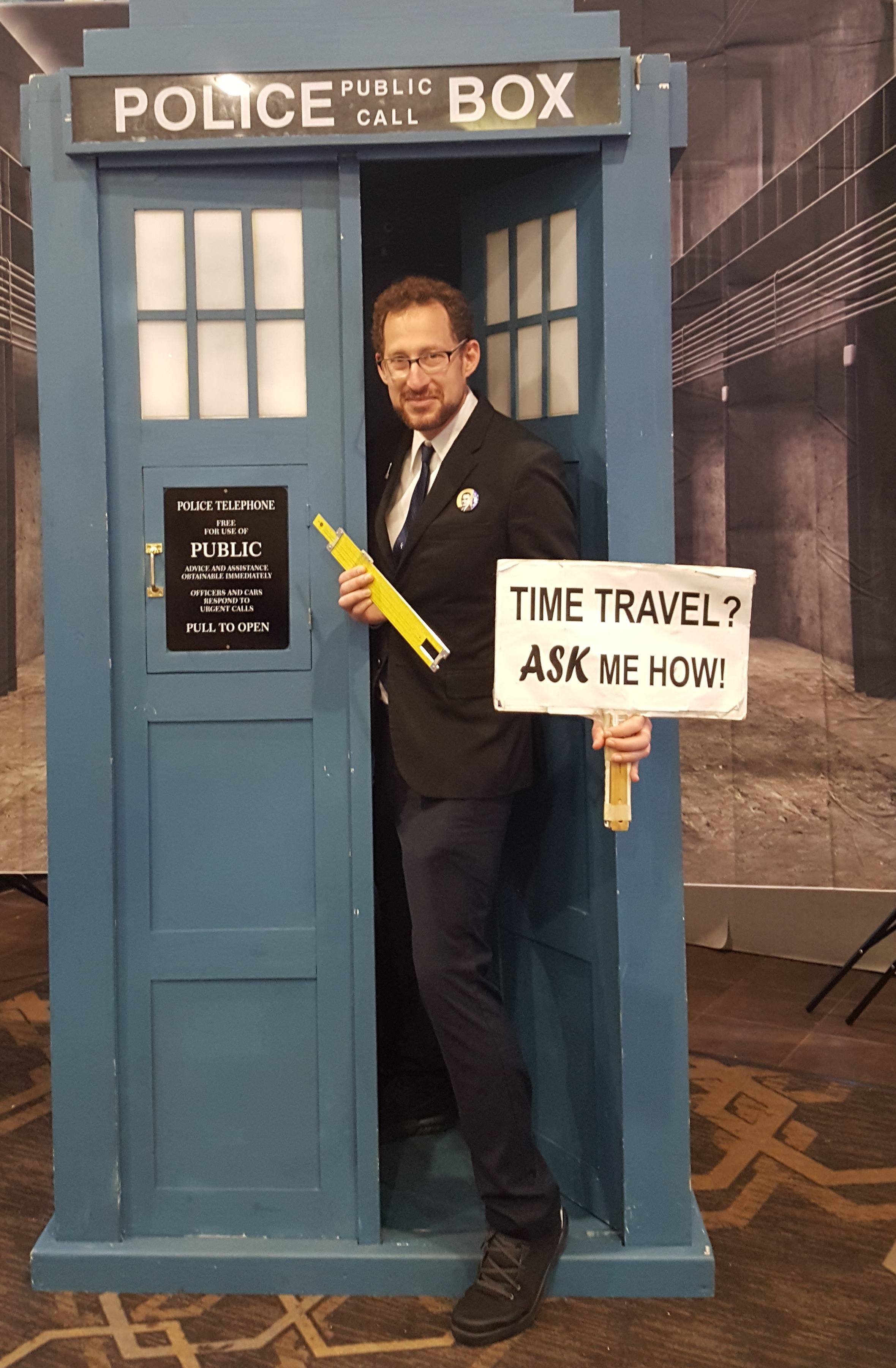
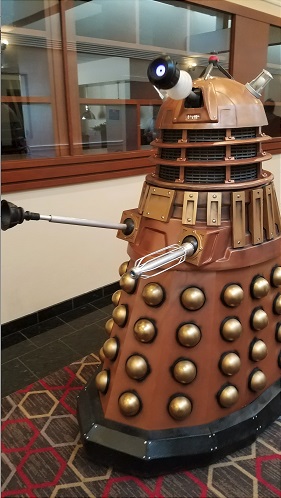

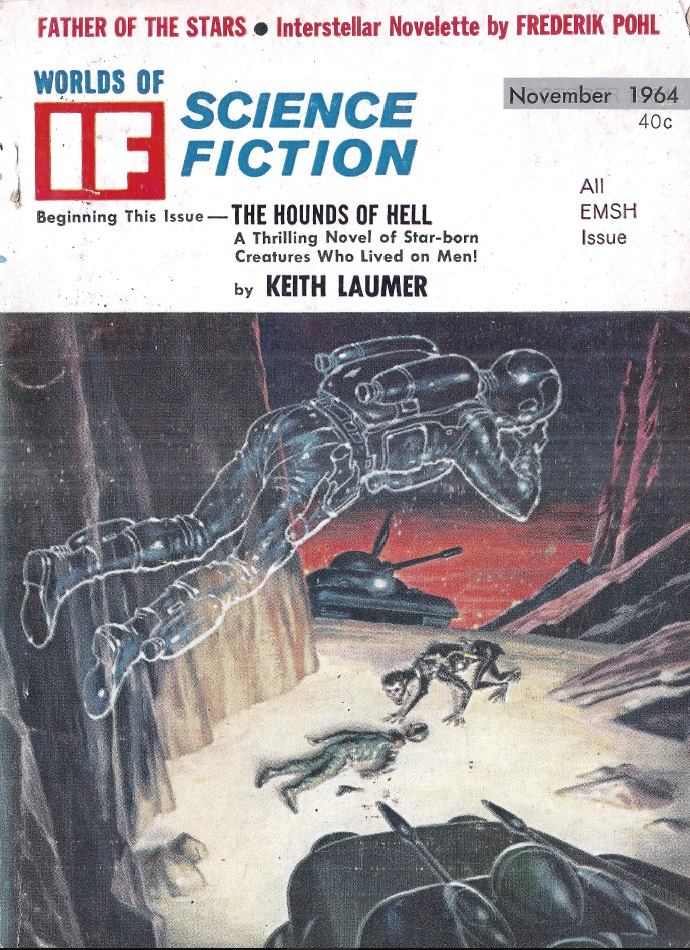


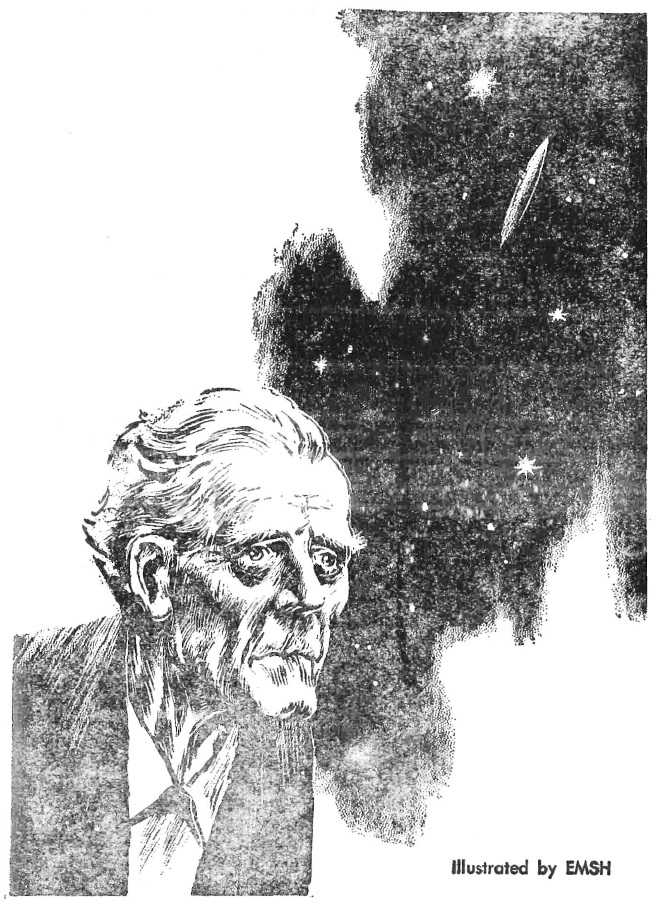

![[September 18, 1964] Split Personality (October 1964 <i>IF</i>)](https://galacticjourney.org/wp-content/uploads/2019/09/640918cover-672x372.jpg)
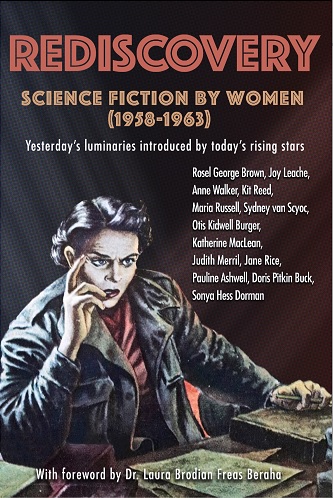






![[July 6, 1964] Busy Schedule (August 1964 <i>IF</i>)](https://galacticjourney.org/wp-content/uploads/2019/07/640706cover-672x372.jpg)

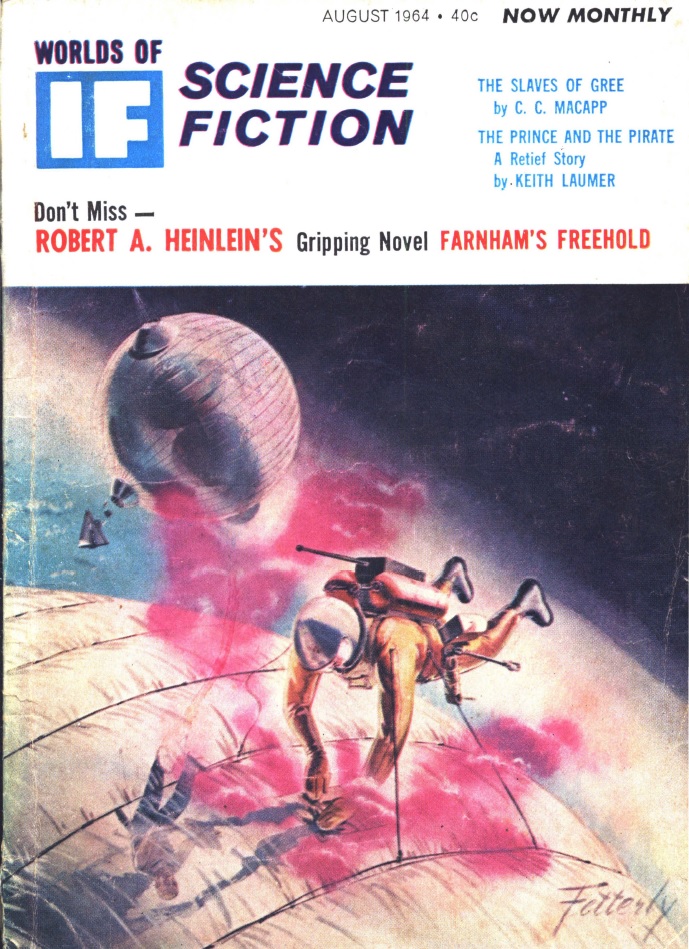
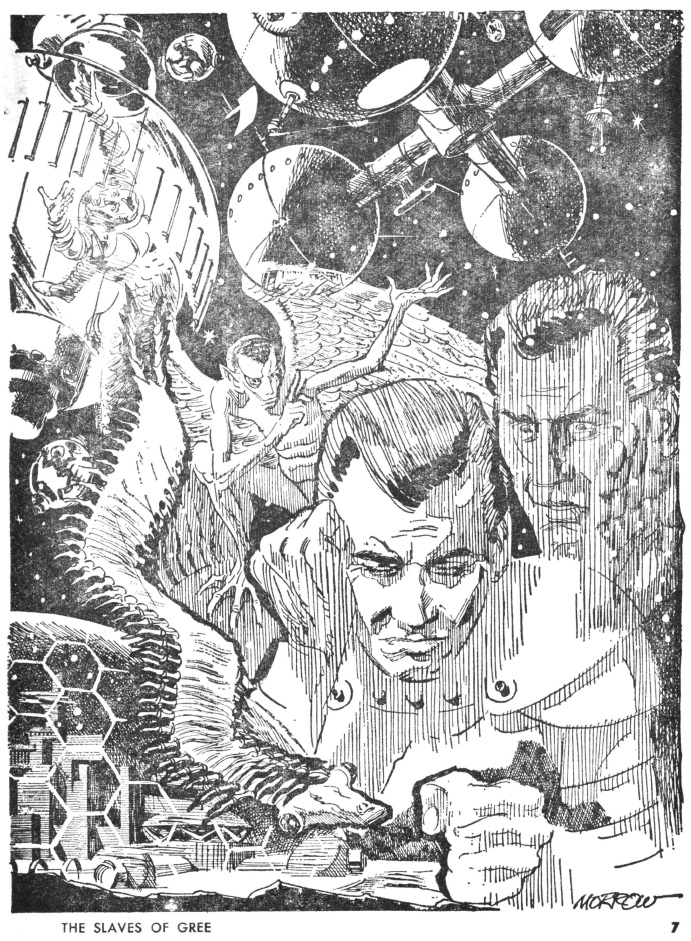
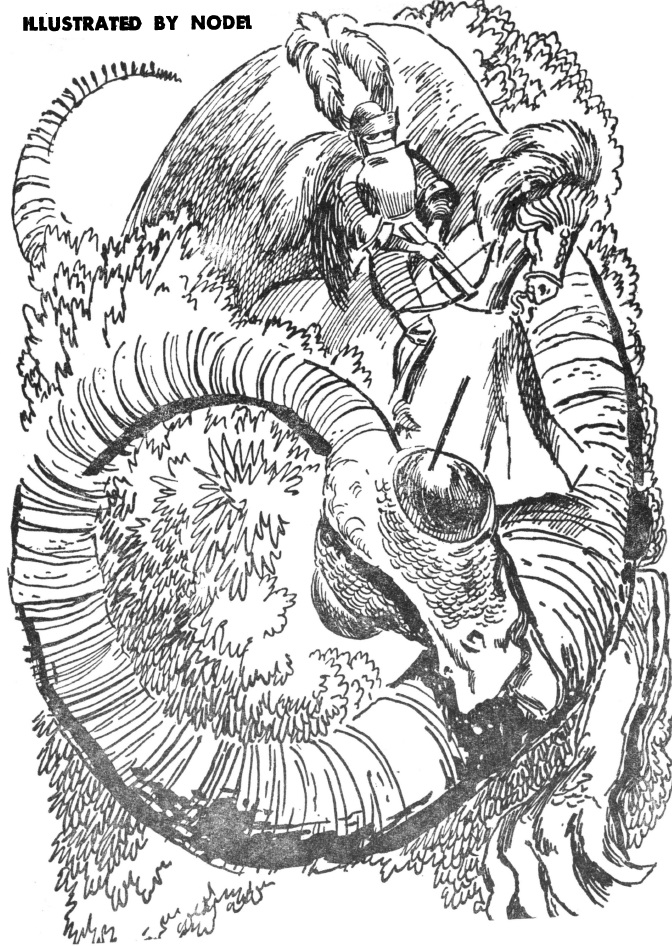
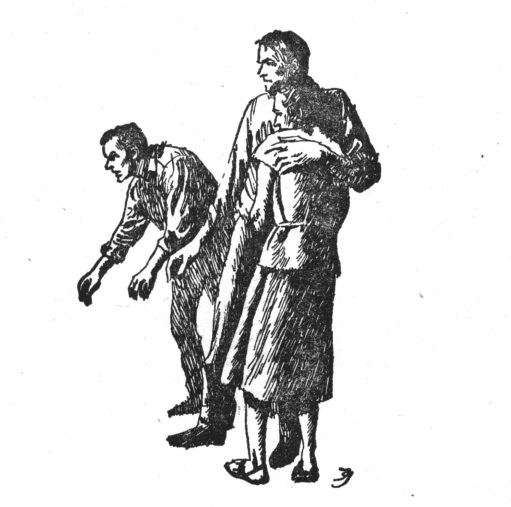
![[June 8, 1964] Be Prepared! (July 1964 <i>IF</i>)](https://galacticjourney.org/wp-content/uploads/2019/06/640608cover-672x372.jpg)








![[Apr. 6, 1964] The art of word-smithing (May 1964 <i>IF</i>)](https://galacticjourney.org/wp-content/uploads/2019/04/640406cover-672x372.jpg)




